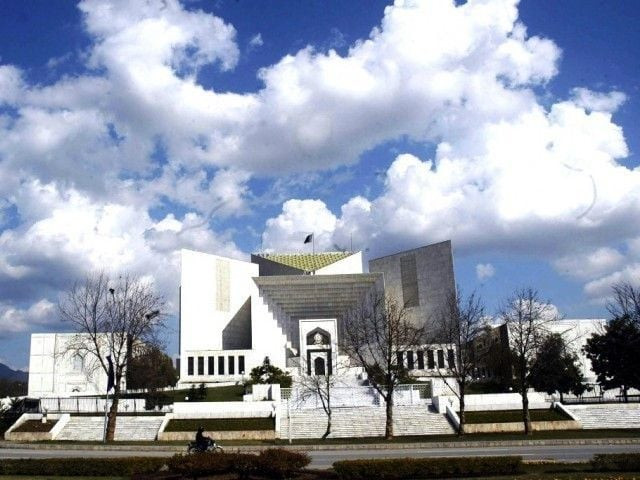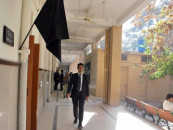HCs stopped from passing strictures against lower judiciary
Top court observes that public condemnation of a judge lowers public trust in judicial institution

The Supreme Court has refrained high courts for passing strictures against lower judiciary.
“Public reprimand of a judge of the lower court regarding his judicial conduct by an appellate court while sitting in judgment over his or her judicial decision, either by recording a stricture or a censorious remark in its appellate judgment or by summoning the judge and reproaching him orally in open court, does not behave the judiciary of a constitutional democracy which boasts of the independence of judiciary as its salient pillar,” read a five-page judgment authored by Justice Syed Mansoor Ali Shah.
The three-judge bench of the apex court, led by Justice Umar Ata Bandial, heard petitions filed by Punjab district judiciary’s two judges, who had approached the SC over their grievances against the stricture and direction passed against them by the Lahore High Court in its June 22 judgment.
“Any such public condemnation of a judge lowers the public trust in the judicial institution, besides the harmful effect it has on the morale and confidence of the judge concerned as well as of his colleagues,” it added.
Also read: Strong judiciary a must for stronger country: Justice Shah
The bench posed a question as whether a high court, or any other appellate court, could record in its judgment a stricture against the judge of the lower court whose judgment or order is impugned before it, relating to his or her efficiency or conduct.
Justice Shah while authoring judgment noted that the district judiciary was the backbone of our judicial system.
“The judges of the district judiciary perform the onerous task of dispensing justice at the frontline by dealing with a large number of cases in a difficult and demanding environment,” he added.
“The judges of the higher courts must appreciate the stressful and challenging conditions in which these judges perform. Our judicial system acknowledges the fallibility of judges, and hence provides for appeals and revisions.”
The verdict noted that it was often said that a judge who had not committed an error was yet to be born.
“This applies to all judges, no matter how high or low in rank they maybe.”
The judgment noted that the intemperate or extravagant criticism on the ability of a person having a contrary view is often founded on one’s sense of his own infallibility.
Also read: Favouritism in assigning cases bad for judiciary: Justice Baqar
“This must be avoided, and the judicial approach should always be based on the consciousness that everyone may make a mistake. While examining the decision of a court below, the higher court is to assess the reasoning and the legality of the decision challenged before it and not the ability or conduct of the author judge. The latter is the function of the disciplinary authority.”
The judgment said that a higher court generally adhered to horizontal precedents -- its own earlier decisions -- but it might depart from or overrule any of its own decisions by sitting as a larger bench if there was a compelling justification to do so. The court allowed petitions and expunged the impugned stricture and direction.
“The learned Judge of the High Court may, if deems it proper and necessary, act in accordance with the principles settled in the cited precedents, and recapitulated above. Office shall dispatch a copy of this judgment to the Registrar, Lahore High Court to be placed before the learned Judge concerned,” the judgment read.



















COMMENTS
Comments are moderated and generally will be posted if they are on-topic and not abusive.
For more information, please see our Comments FAQ